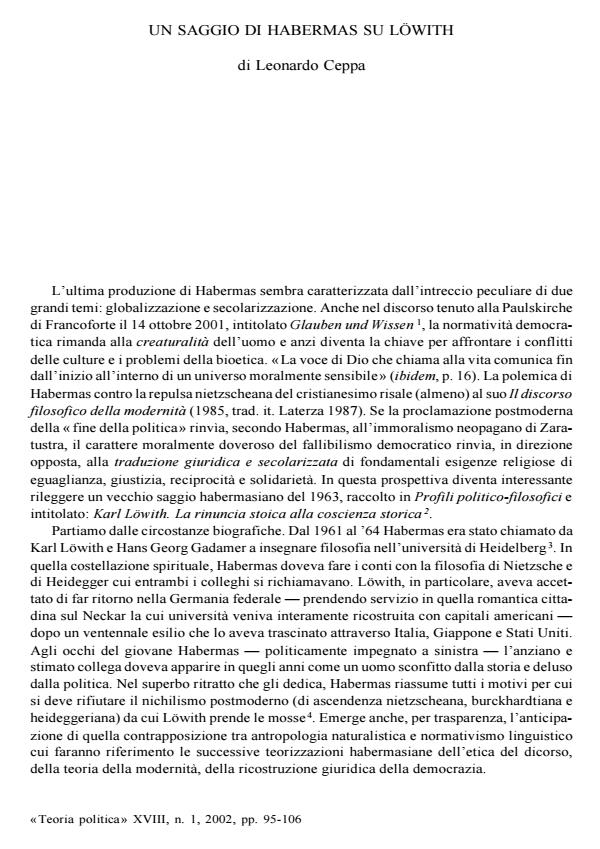Un saggio di Habermas su Lowith
Titolo Rivista TEORIA POLITICA
Autori/Curatori Leonardo Ceppa
Anno di pubblicazione 2002 Fascicolo 2002/1
Lingua Italiano Numero pagine 12 P. Dimensione file 44 KB
DOI
Il DOI è il codice a barre della proprietà intellettuale: per saperne di più
clicca qui
Qui sotto puoi vedere in anteprima la prima pagina di questo articolo.
Se questo articolo ti interessa, lo puoi acquistare (e scaricare in formato pdf) seguendo le facili indicazioni per acquistare il download credit. Acquista Download Credits per scaricare questo Articolo in formato PDF

FrancoAngeli è membro della Publishers International Linking Association, Inc (PILA), associazione indipendente e non profit per facilitare (attraverso i servizi tecnologici implementati da CrossRef.org) l’accesso degli studiosi ai contenuti digitali nelle pubblicazioni professionali e scientifiche.
In the 1963 essay on Löwith, Habermas shows a genealogic inclination which will have big developments in his thought. That is the tendency to draw the moral universalism which is typical of modernity (equal respect for everybody and reciprocal solidarity) back to the Jewish idea of justice and to the Christian idea of love. The normative logos of modernity finds in the biblical idea of creation and salvation its"only possible source". It becomes therefore interesting to see in his dispute with Löwith, the first germs of a double theoretical program. On one side, political philosophy traces more and more decisively to their religious origins the moral intuitions of modernity (universalism and democratic solidarity). On the other side, though, it takes on itself the postreligious and postmetaphysical task to transfer world religions’ content in terms of truth in a more abstract language (that is neutral, transcultural, and implementable).
Leonardo Ceppa, Un saggio di Habermas su Lowith in "TEORIA POLITICA" 1/2002, pp , DOI: